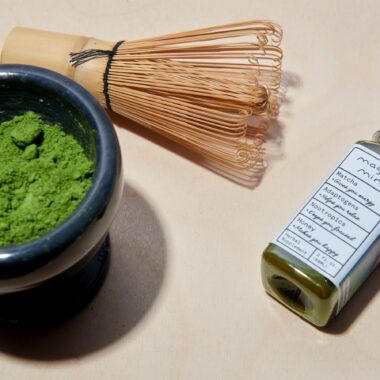
Is Mushroom Coffee Legal? Navigating the Regulations and Guidelines.

Are there any labeling requirements for mushroom coffee products?
Is Mushroom Coffee Legal? Navigating the Regulations and Guidelines
Introduction:
Mushroom coffee has gained significant popularity for its potential health benefits and unique flavor. However, as with any emerging food product, it’s important to understand the legal considerations and regulations surrounding its production, distribution, and consumption. In this article, we will into the topic of whether mushroom coffee is legal, exploring the various regulations and guidelines that govern its use. Let’s navigate this fascinating domain together!
1. Understanding the Ingredients:
Before examining the legality of mushroom coffee, it is crucial to comprehend its ingredients. Typically, mushroom coffee is a blend of regular coffee beans and medicinal mushrooms, such as lion’s mane or cordyceps. These mushrooms are believed to possess various health-promoting properties, including improved cognitive function and enhanced immune system responses.
2. Regulatory Bodies and Guidelines:
To ensure the safety and legality of mushroom coffee, several regulatory bodies across different countries have established guidelines. These guidelines aim to regulate the production, labeling, and marketing practices associated with mushroom-infused products. For example, in the United States, the Food and Drug Administration (FDA) oversees the compliance of mushroom coffee manufacturers with relevant regulations.
3. Labeling and Ingredient Disclosure:
One key aspect of regulations for mushroom coffee is proper product labeling. Manufacturers are required to provide accurate ingredient information on their packaging. This transparency ensures that consumers are aware of the mushrooms contained in the coffee and can make informed choices based on their preferences and potential dietary restrictions.
4. Health Claims and Functional Foods:
Another crucial consideration when assessing the legality of mushroom coffee relates to health claims and functional foods. In many countries, including the United States, health claims made by food products require scientific evidence and must be approved by the regulatory bodies. This regulation ensures that consumers are not misled by exaggerated or unsubstantiated health claims associated with mushroom coffee.
5. Licensing and Certification:
In some regions, producers of mushroom coffee may be required to obtain specific licenses and certifications. These requirements vary across different countries, and it is essential for manufacturers to adhere to the specified regulations to ensure the legality of their products. Consumers can look for certifications, such as organic or fair trade, to ensure that the product meets certain quality standards.
6. Consideration of Novel Foods:
Mushroom coffee, being an innovative product, may fall under the category of novel foods in some jurisdictions. Novel foods refer to products that were not commonly consumed before a specific date and may necessitate additional scrutiny from regulatory authorities. Manufacturers must ensure compliance with novel food regulations to legally sell mushroom coffee in such regions.
7. Import and Export Regulations:
If you are considering importing or exporting mushroom coffee, it’s important to understand the regulations associated with international trade. Different countries have varying rules and restrictions governing the import and export of food products, including mushroom-infused beverages. Familiarize yourself with these regulations to avoid any legal complications.
8. Consumer Awareness and Education:
As consumers, it is crucial to be well-informed about the legal and regulatory aspects of mushroom coffee. By familiarizing ourselves with the guidelines, certifications, and labeling requirements, we can make conscious decisions and choose products that meet our preferences and standards. Increasing consumer awareness also encourages manufacturers to comply with regulations, ultimately promoting a safer and more transparent market.
9. Legal Challenges and Gray Areas:
Despite the existence of regulations and guidelines, the legality of mushroom coffee can be a complex matter, with certain gray areas. As the popularity of this unique beverage continues to grow, lawmakers and regulatory bodies face the challenge of adapting to new products that may not neatly fit within existing frameworks. Continuous discussions and amendments may shape the legal landscape surrounding mushroom coffee in the future.
10. Conclusion:
In conclusion, mushroom coffee offers an exciting fusion of flavors and potential health benefits. While regulations and guidelines govern its legality, it’s equally important for both manufacturers and consumers to stay informed and compliant with the established norms. By understanding the various aspects of these regulations, including ingredient disclosure, health claims, licensing, and import/export rules, we can ensure that mushroom coffee remains a legal and enjoyable beverage option. So, sip your mushroom coffee with confidence, as you navigate the regulations and guidelines that contribute to its legal status. Cheers to a delightful and legal mushroom coffee experience!
As health-promoting coffee alternatives have started to become more popular, mushroom coffee has become one of the more talked about beverages. But is mushroom coffee legal? What are the regulations and guidelines surrounding mushroom coffee?
Before you buy mushroom coffee, it’s important to understand the federal and state regulations and guidelines in place. The US Food and Drug Administration (FDA) regulates the production, labeling, and ingredients of food products. Generally, mushroom coffee is made with a variety of mushrooms, such as reishi, chaga, and cordyceps, and the FDA considers these ingredients to generally be recognized as safe (GRAS) for use in food. When it comes to the labeling and advertising of mushroom coffee, the FDA doesn’t have specific requirements, but does state that it should be truthful and not misleading.
However, the FDA does take issue with companies claiming that their mushroom coffee products are a cure-all for diseases, as this isn’t supported by scientific evidence. Also, there are ingredients used in some mushroom coffees that are not on the GRAS list and therefore are not allowed to be used in the production of mushroom coffee.
In terms of state regulations, some states require businesses that produce or sell mushroom coffee to be licensed and adhere to certain rules. Furthermore, states that don’t specifically regulate the production and sale of mushroom coffee may still regulate certain ingredients, such as caffeine or certain mushrooms, that are in the product.
Mushroom coffee is becoming increasingly popular and while the FDA has yet to issue specific regulations for this product, the general guidelines for food production should be followed when producing or selling mushroom coffee. Additionally, it is important to be aware of the regulations in place in your state or jurisdiction when selling mushroom coffee products.

























